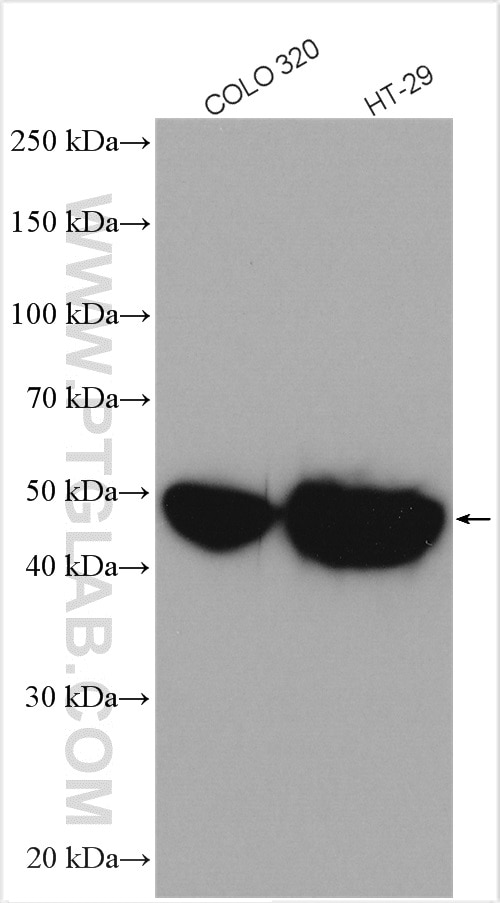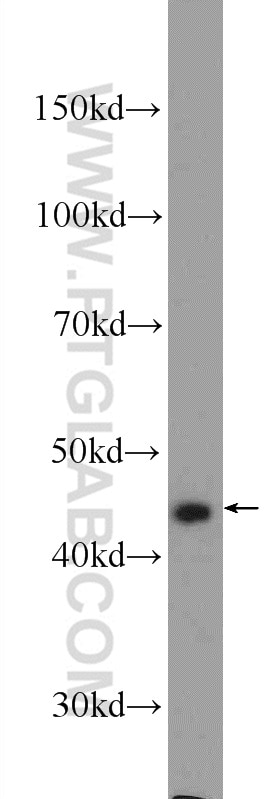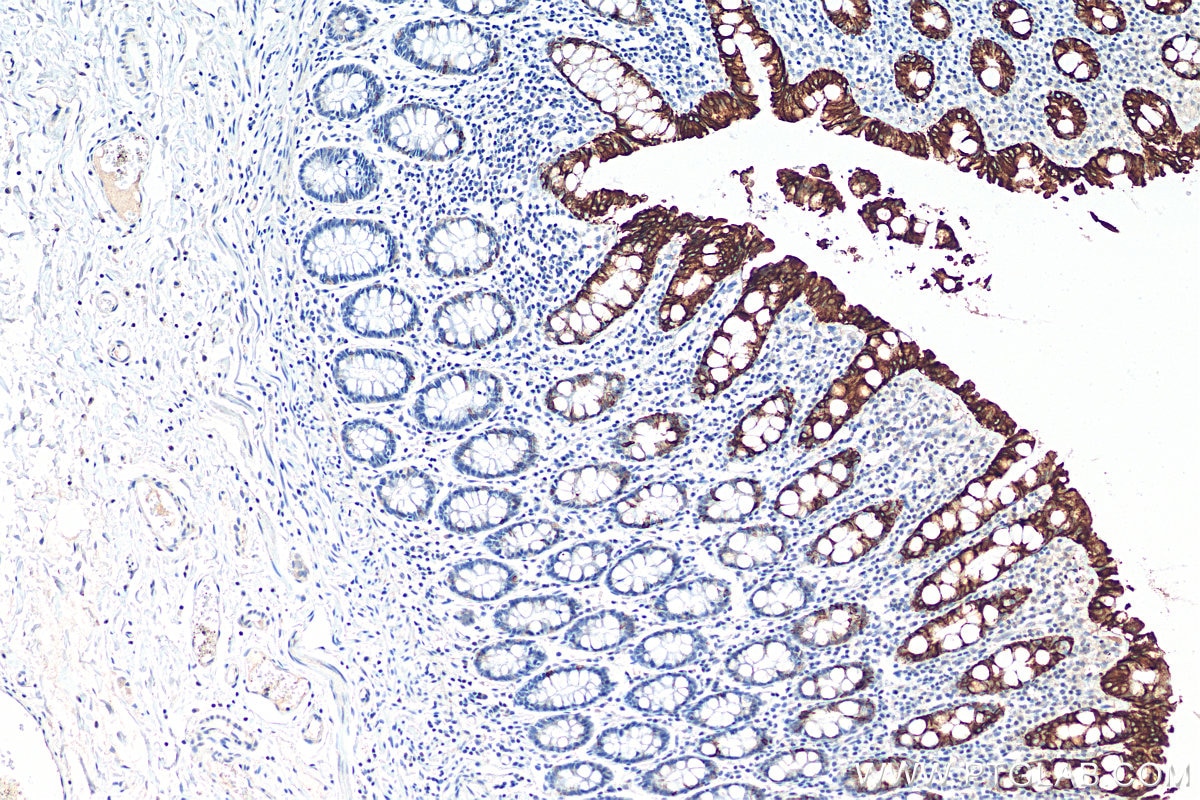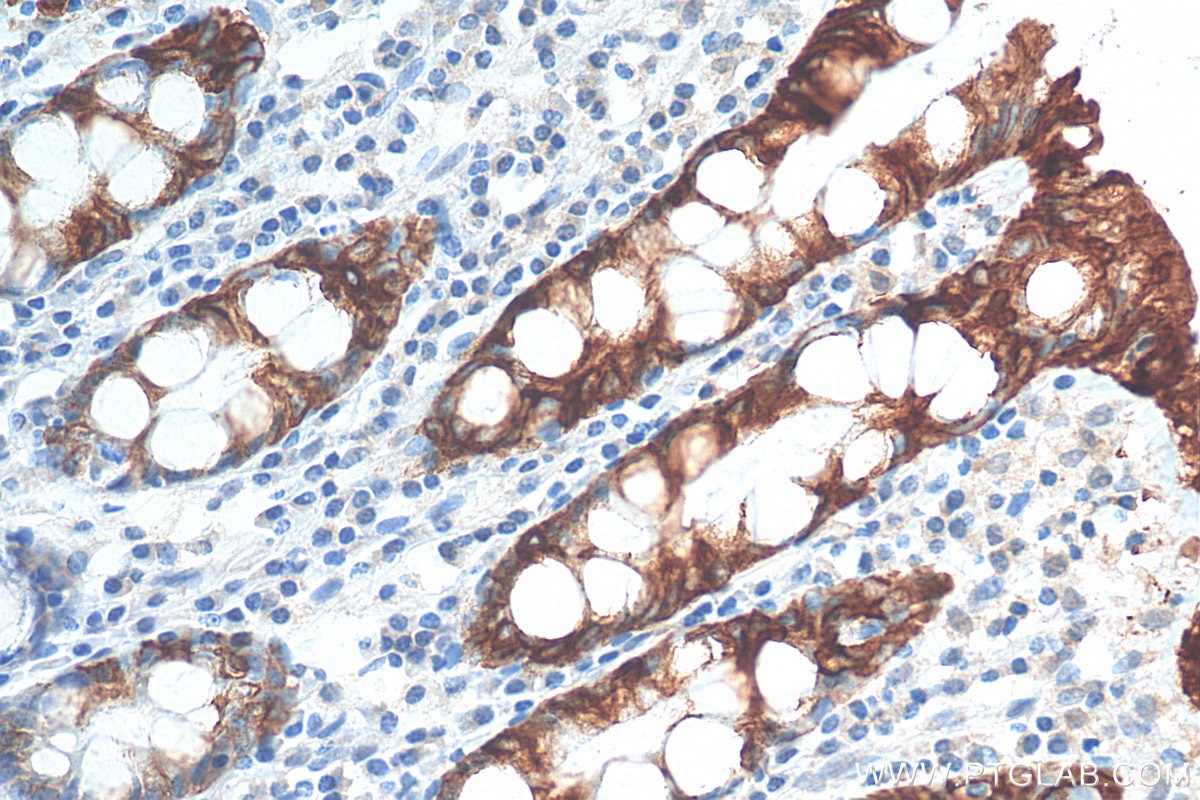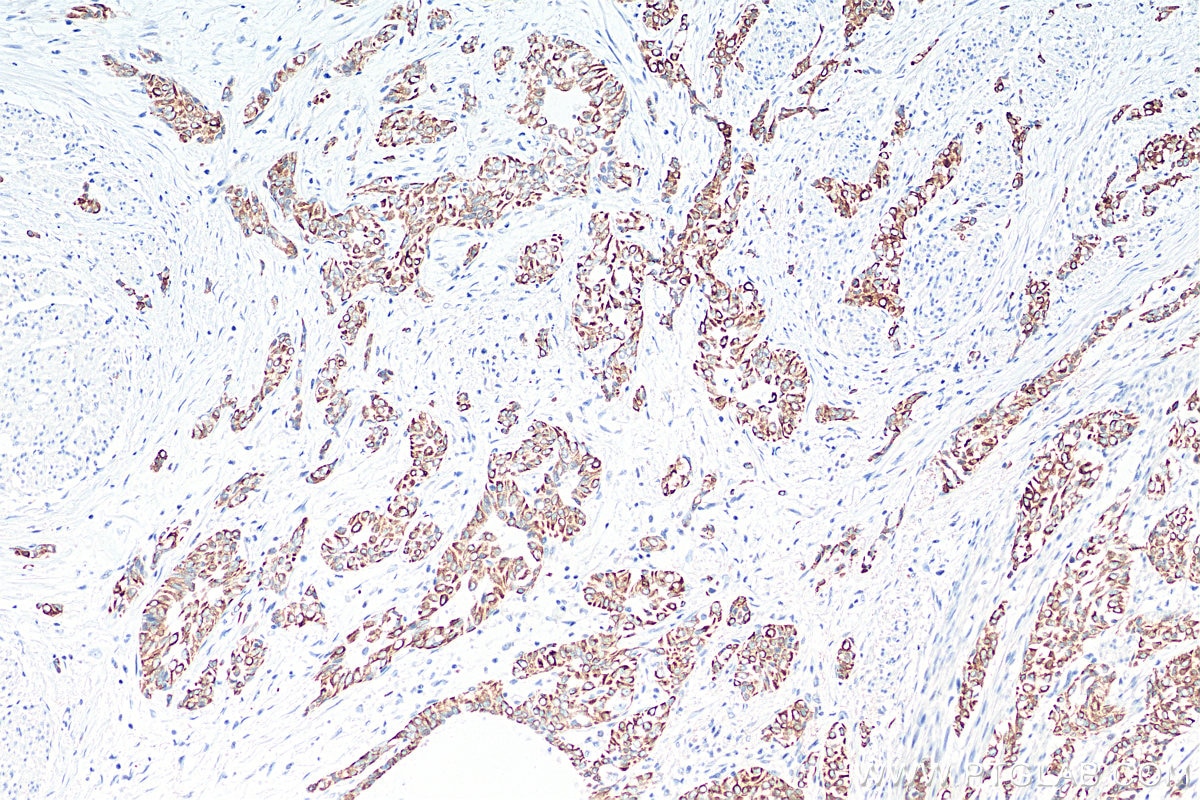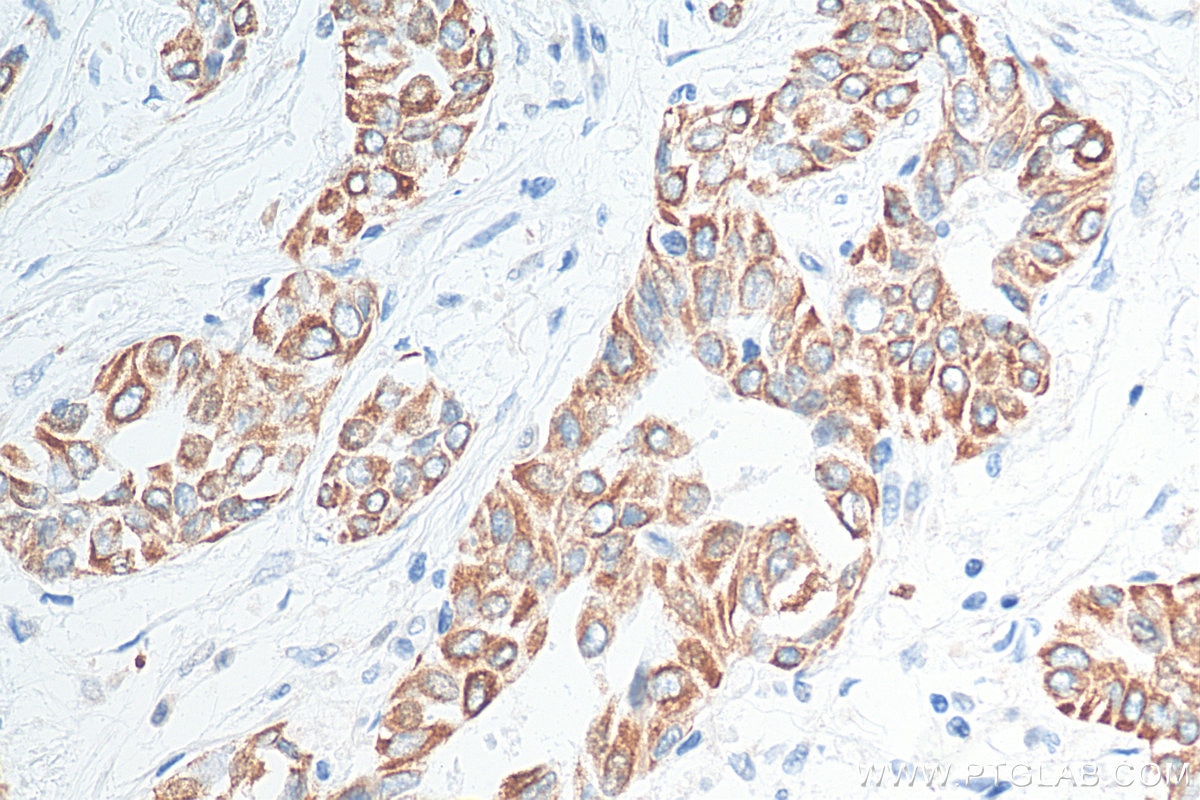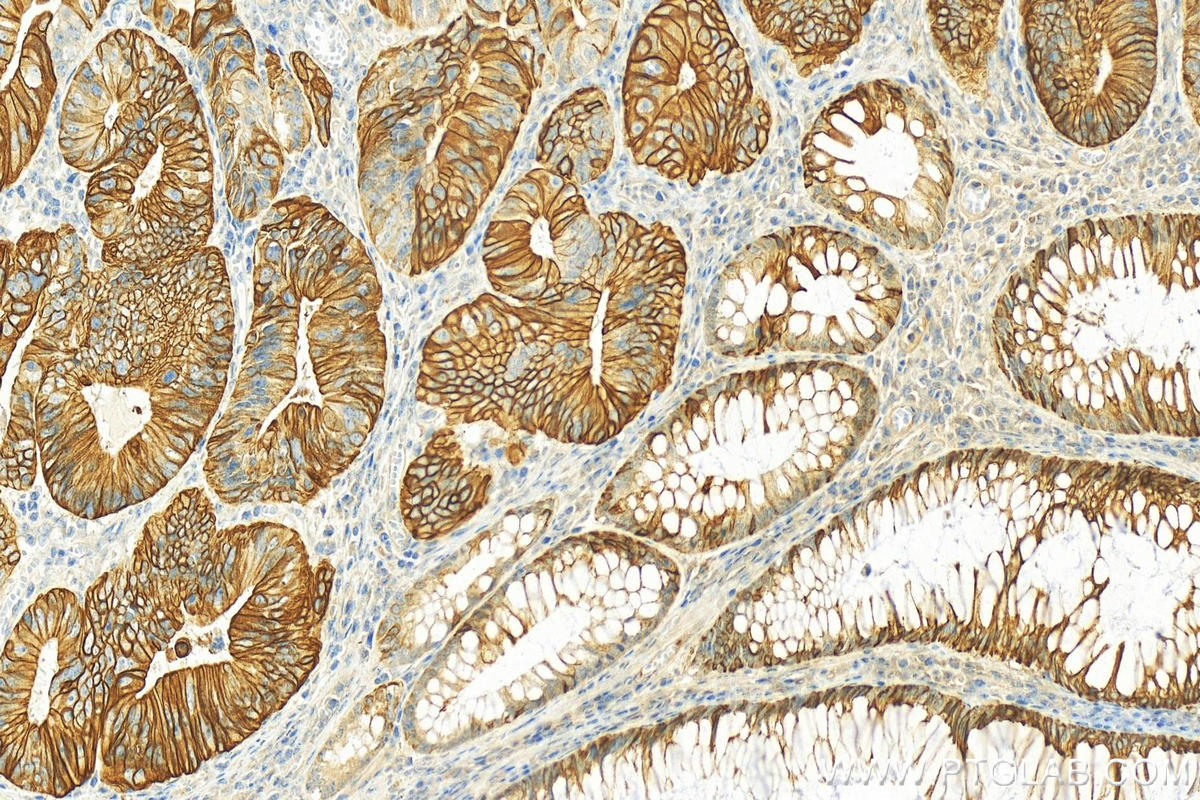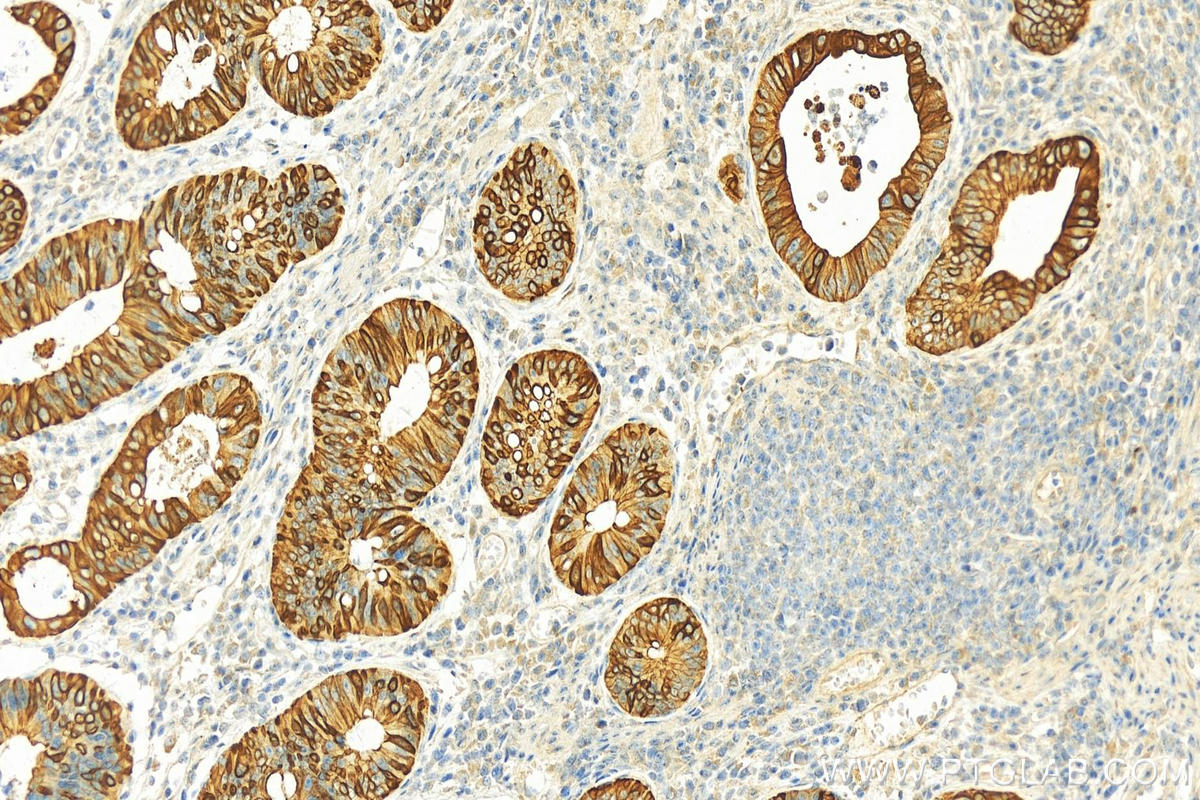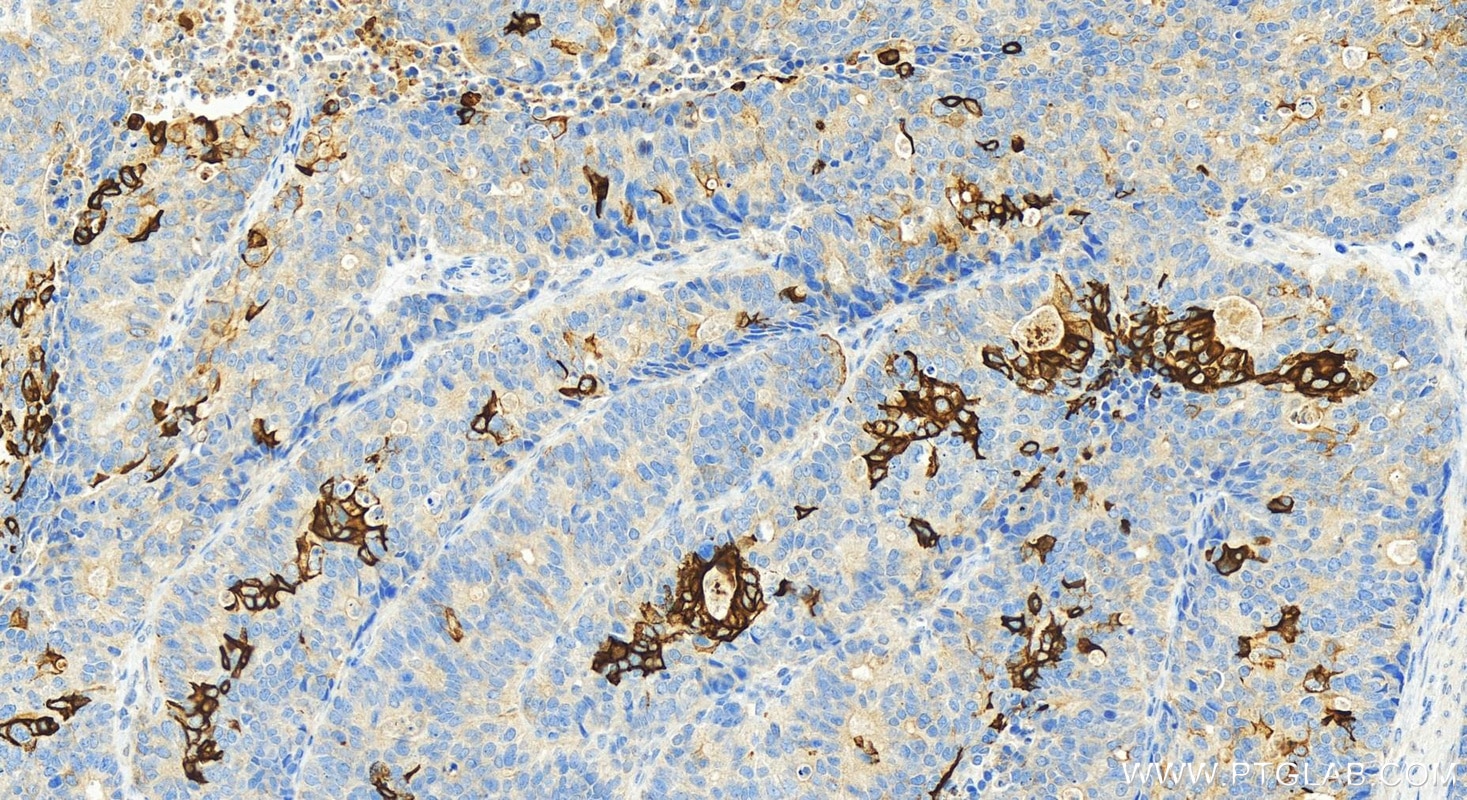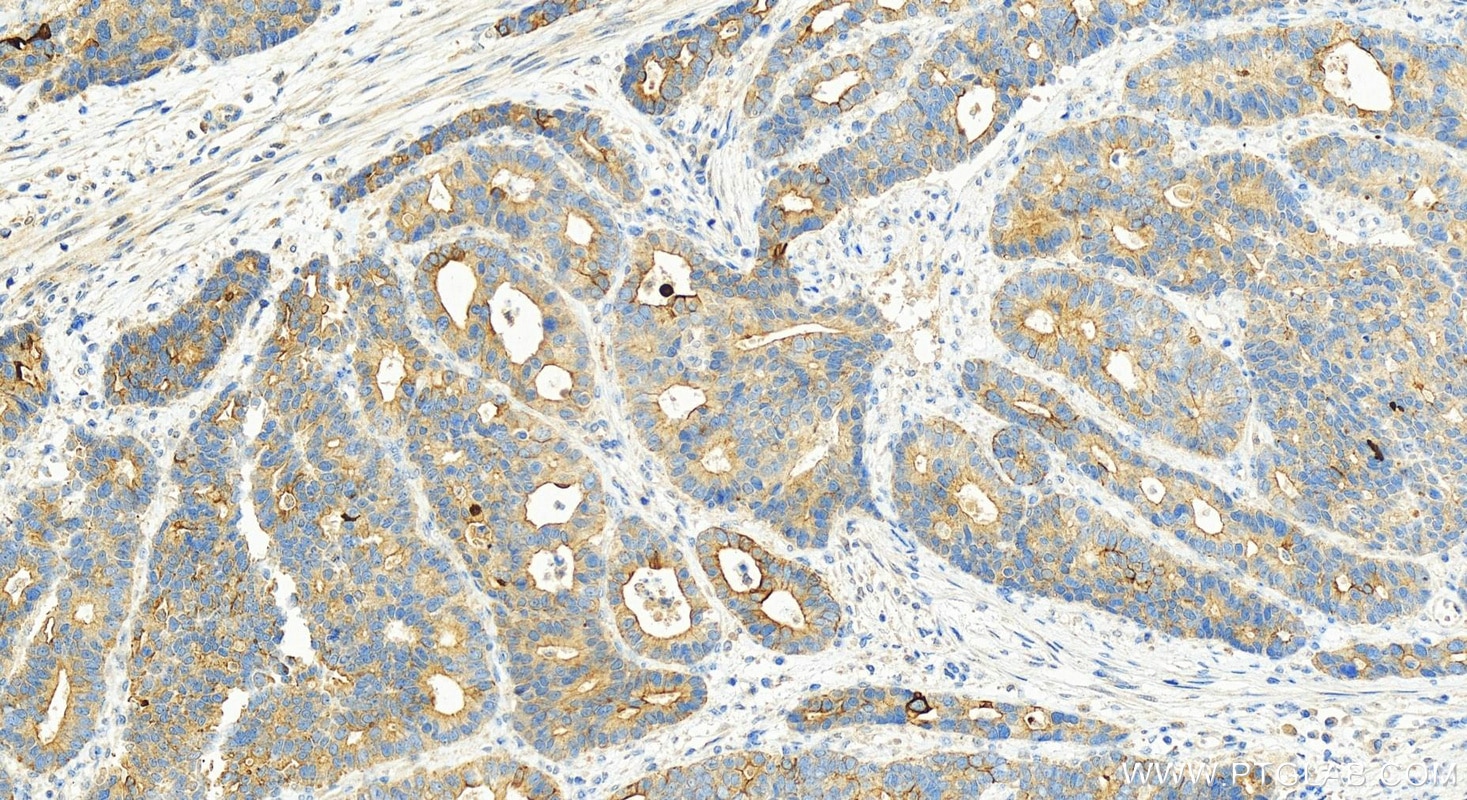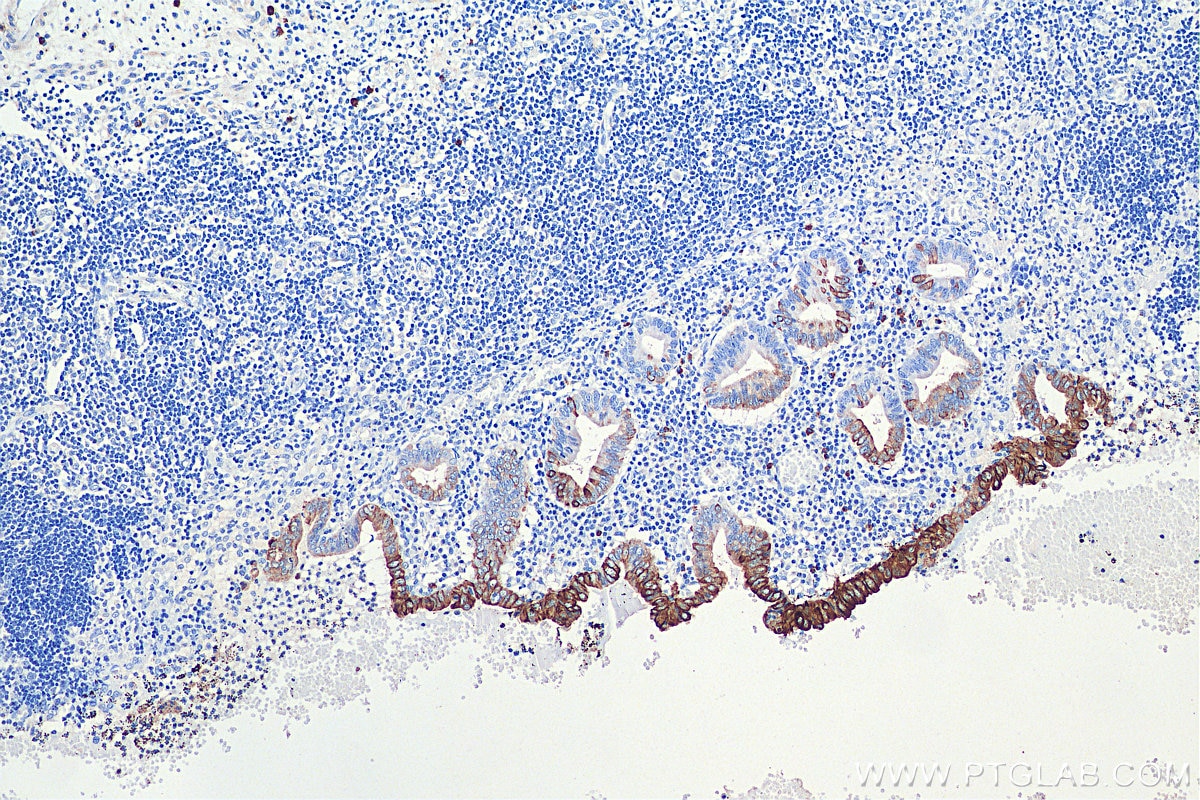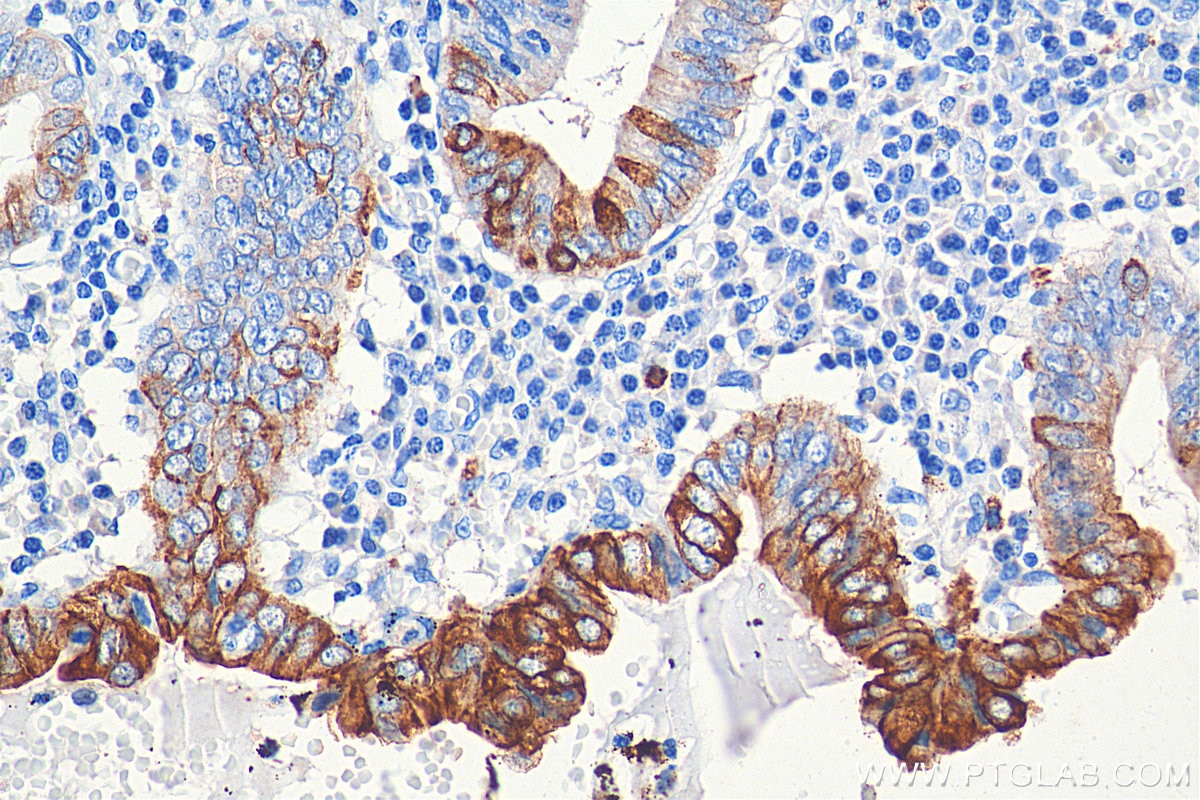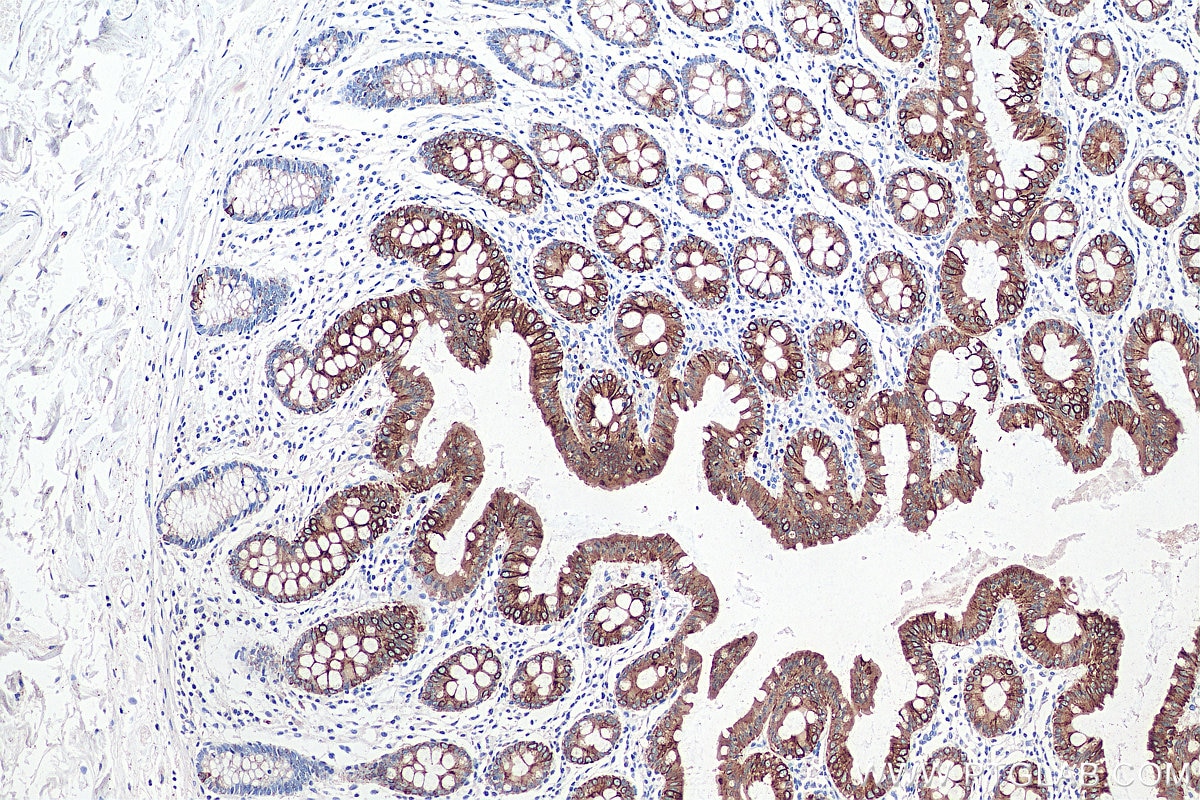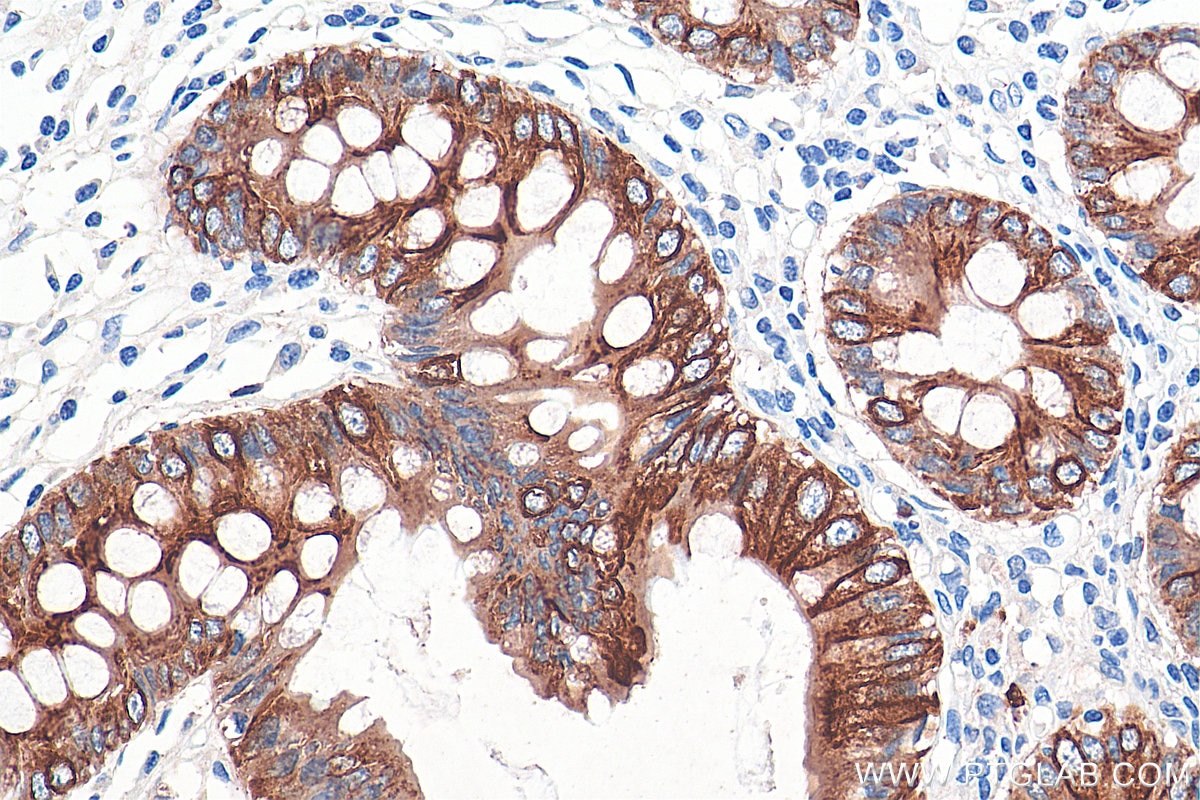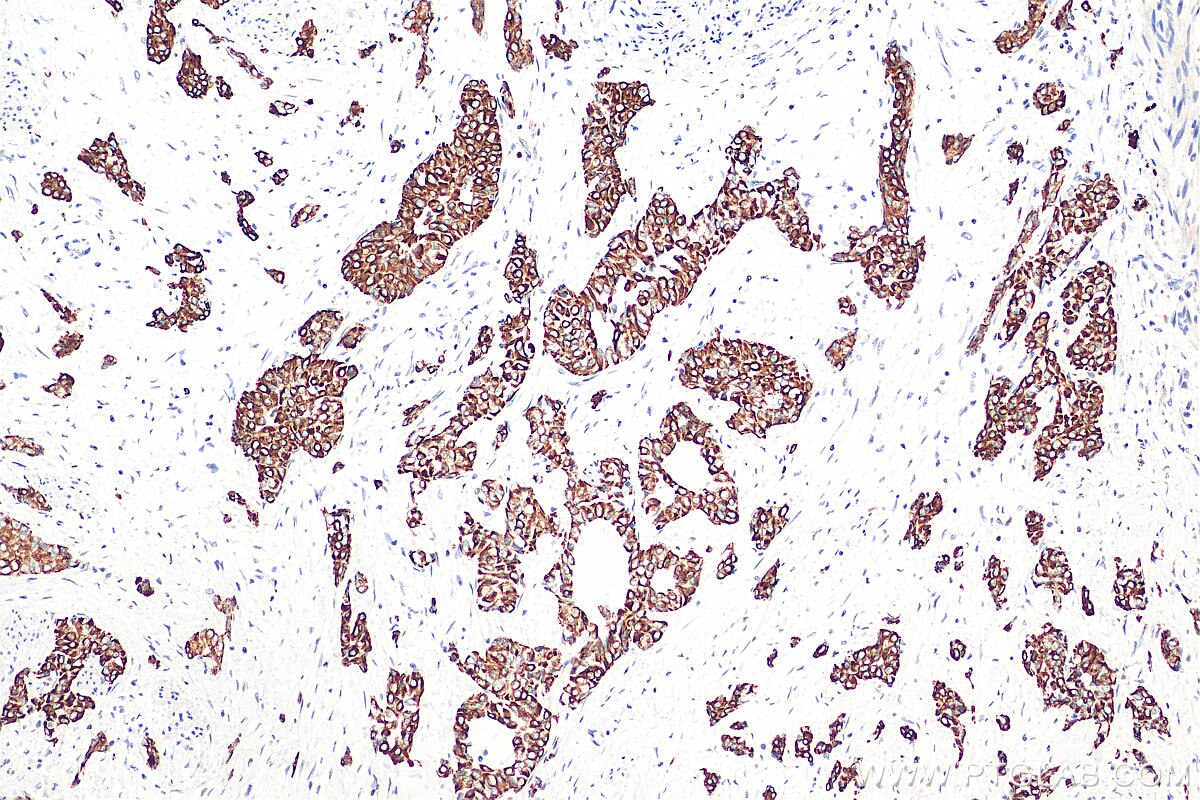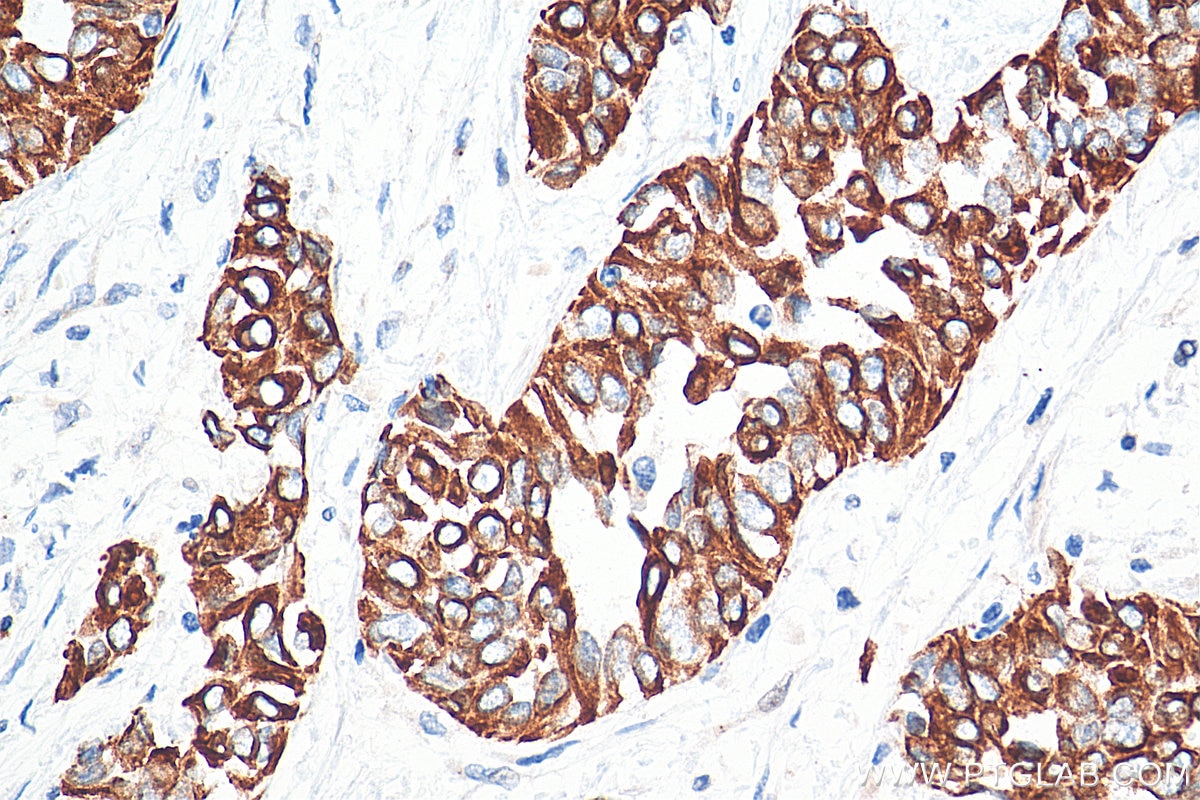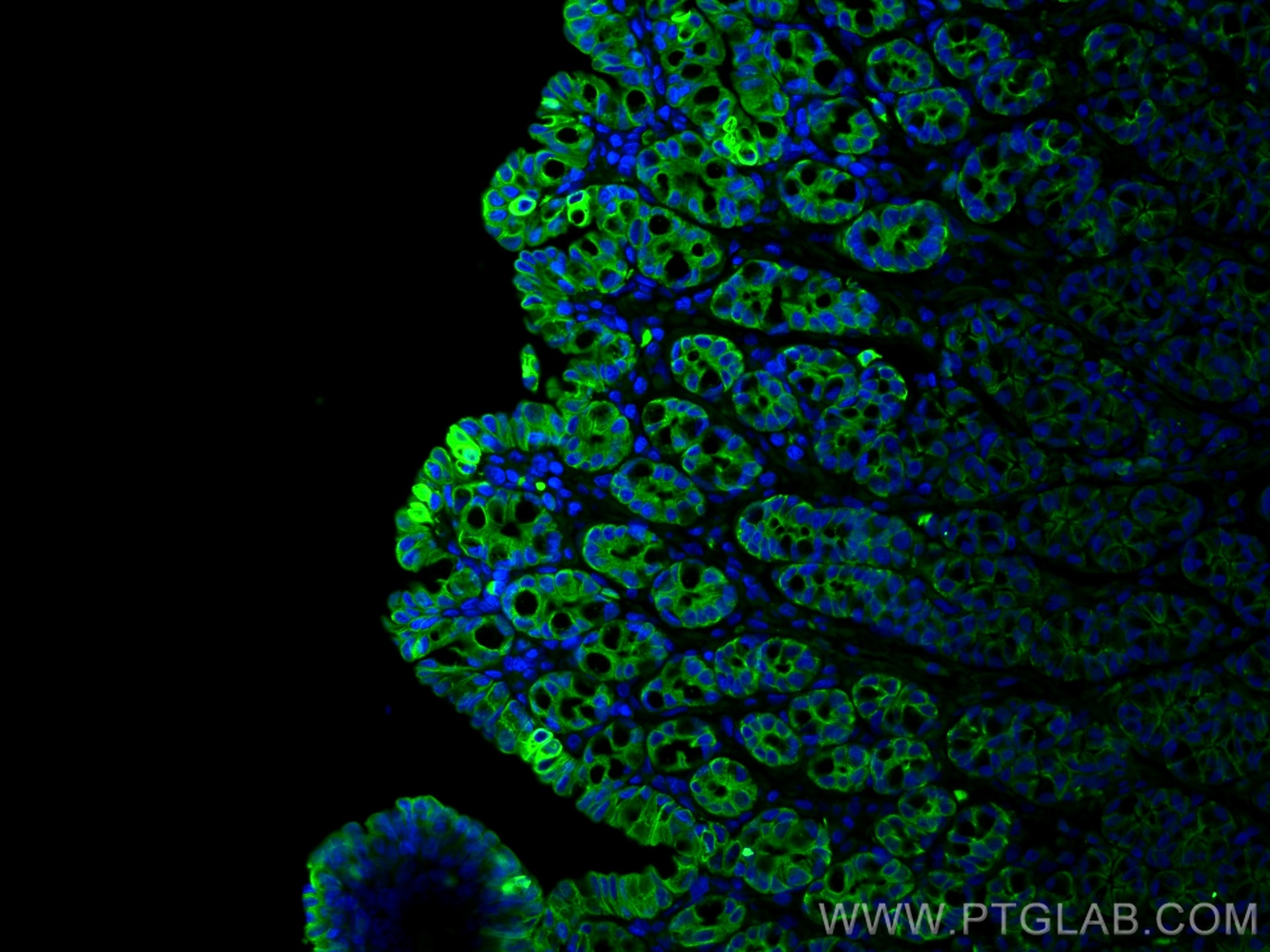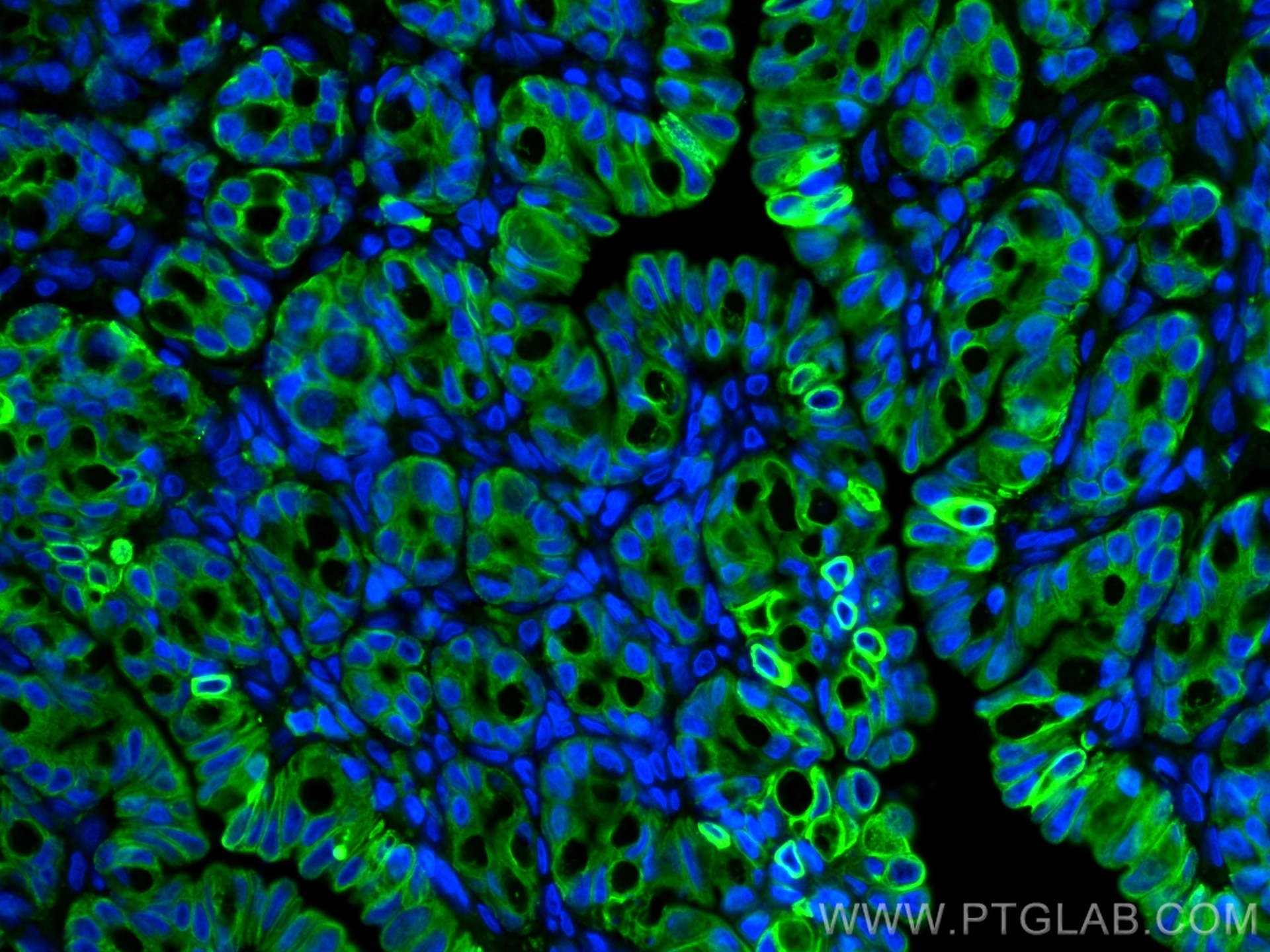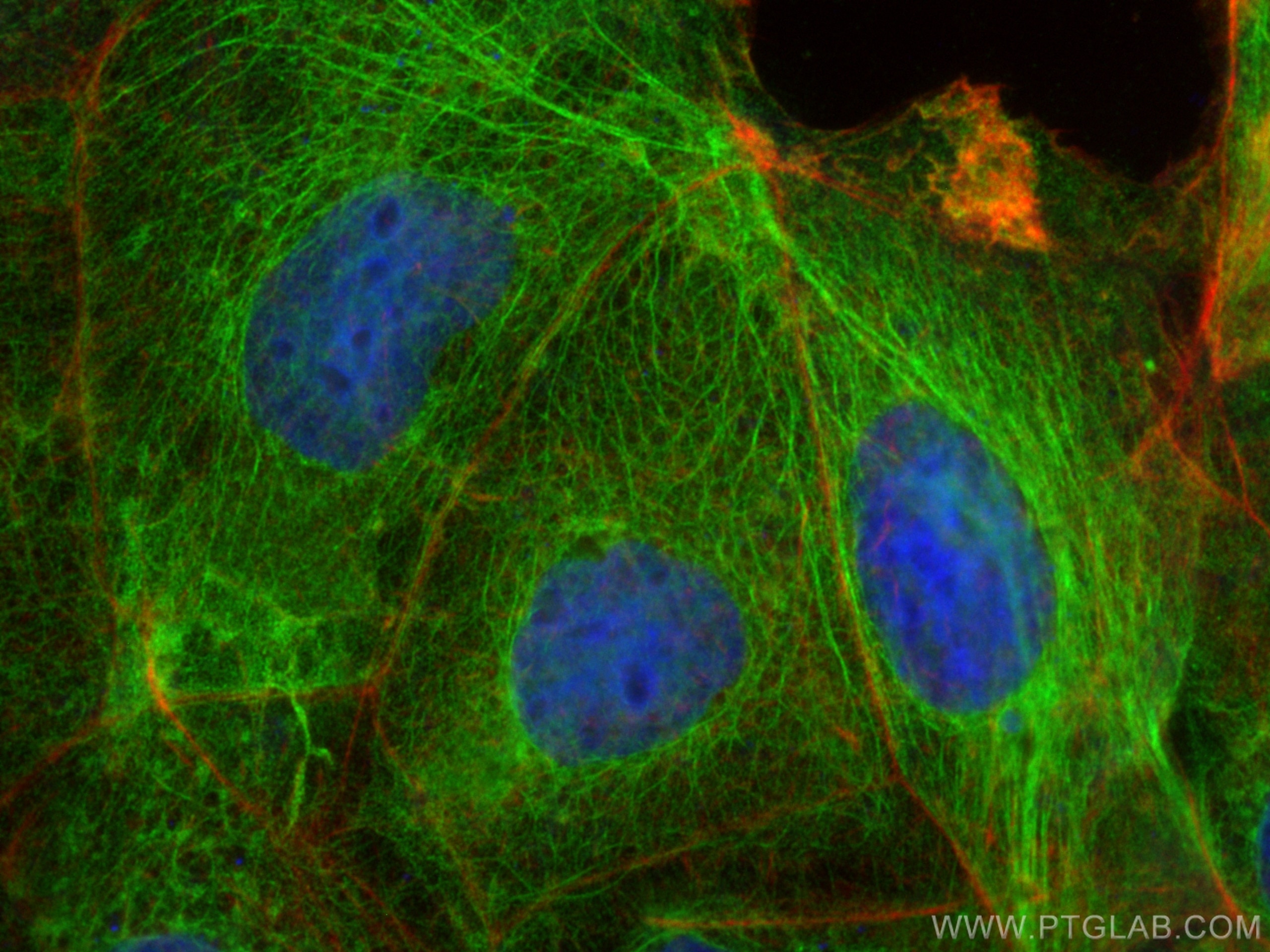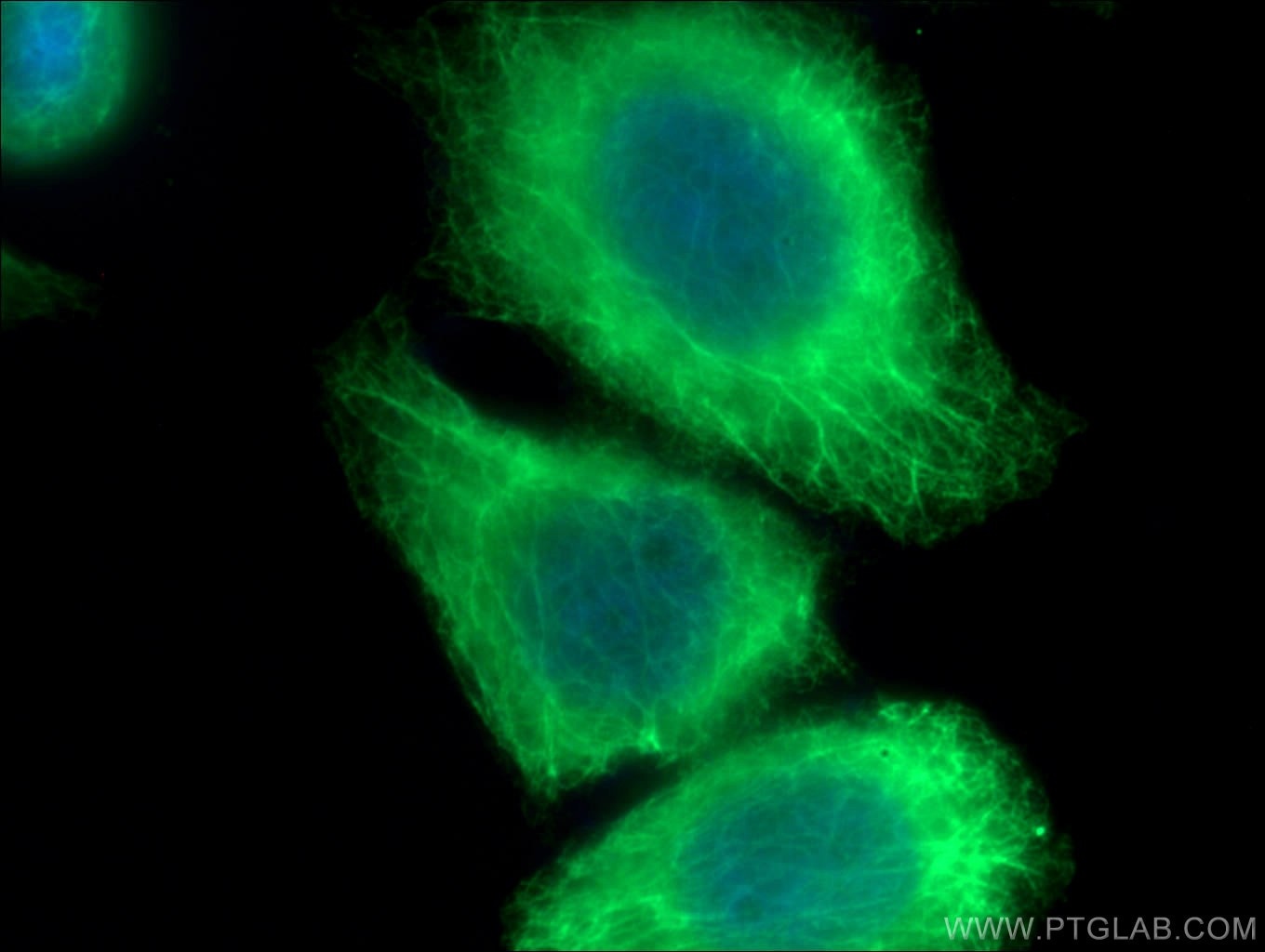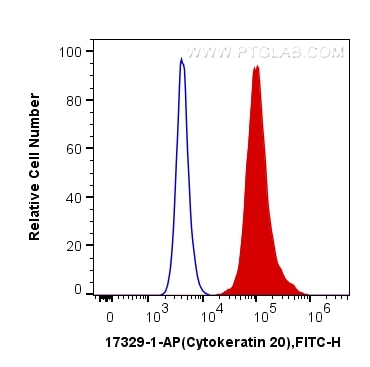Anticorps Polyclonal de lapin anti-Cytokeratin 20
Cytokeratin 20 Polyclonal Antibody for WB, IHC, IF/ICC, IF-P, FC (Intra), ELISA
Hôte / Isotype
Lapin / IgG
Réactivité testée
Humain, Lapin, rat, souris
Applications
WB, IHC, IF/ICC, IF-P, FC (Intra), ELISA
Conjugaison
Non conjugué
N° de cat : 17329-1-AP
Synonymes
Galerie de données de validation
Applications testées
| Résultats positifs en WB | cellules COLO 320, cellules HeLa, cellules HT-29 |
| Résultats positifs en IHC | tissu de côlon humain, tissu d'appendicite humain, tissu de cancer de l'estomac humain, tissu de cancer du côlon humain, tissu de carcinome urothélial humain il est suggéré de démasquer l'antigène avec un tampon de TE buffer pH 9.0; (*) À défaut, 'le démasquage de l'antigène peut être 'effectué avec un tampon citrate pH 6,0. |
| Résultats positifs en IF-P | Rabbit colon tissue, |
| Résultats positifs en IF/ICC | cellules Caco-2, cellules HeLa |
| Résultats positifs en FC (Intra) | cellules HT-29 |
Dilution recommandée
| Application | Dilution |
|---|---|
| Western Blot (WB) | WB : 1:2000-1:16000 |
| Immunohistochimie (IHC) | IHC : 1:1000-1:4000 |
| Immunofluorescence (IF)-P | IF-P : 1:500-1:2000 |
| Immunofluorescence (IF)/ICC | IF/ICC : 1:200-1:800 |
| Flow Cytometry (FC) (INTRA) | FC (INTRA) : 0.20 ug per 10^6 cells in a 100 µl suspension |
| It is recommended that this reagent should be titrated in each testing system to obtain optimal results. | |
| Sample-dependent, check data in validation data gallery | |
Applications publiées
| WB | See 2 publications below |
| IHC | See 2 publications below |
| IF | See 9 publications below |
Informations sur le produit
17329-1-AP cible Cytokeratin 20 dans les applications de WB, IHC, IF/ICC, IF-P, FC (Intra), ELISA et montre une réactivité avec des échantillons Humain, Lapin, rat, souris
| Réactivité | Humain, Lapin, rat, souris |
| Réactivité citée | Humain, souris |
| Hôte / Isotype | Lapin / IgG |
| Clonalité | Polyclonal |
| Type | Anticorps |
| Immunogène | Cytokeratin 20 Protéine recombinante Ag11308 |
| Nom complet | keratin 20 |
| Masse moléculaire calculée | 424 aa, 48 kDa |
| Poids moléculaire observé | 46 kDa |
| Numéro d’acquisition GenBank | BC031559 |
| Symbole du gène | Cytokeratin 20 |
| Identification du gène (NCBI) | 54474 |
| Conjugaison | Non conjugué |
| Forme | Liquide |
| Méthode de purification | Purification par affinité contre l'antigène |
| Tampon de stockage | PBS with 0.02% sodium azide and 50% glycerol |
| Conditions de stockage | Stocker à -20°C. Stable pendant un an après l'expédition. L'aliquotage n'est pas nécessaire pour le stockage à -20oC Les 20ul contiennent 0,1% de BSA. |
Informations générales
Keratins are a large family of proteins that form the intermediate filament cytoskeleton of epithelial cells, which are classified into two major sequence types. Type I keratins are a group of acidic intermediate filament proteins, including K9-K23, and the hair keratins Ha1-Ha8. Type II keratins are the basic or neutral courterparts to the acidic type I keratins, including K1-K8, and the hair keratins, Hb1-Hb6. Keratin 20 is a type I cytokeratin. It is a major cellular protein of mature enterocytes and goblet cells and is specifically found in the gastric and intestinal mucosa.
Protocole
| Product Specific Protocols | |
|---|---|
| WB protocol for Cytokeratin 20 antibody 17329-1-AP | Download protocol |
| IHC protocol for Cytokeratin 20 antibody 17329-1-AP | Download protocol |
| IF protocol for Cytokeratin 20 antibody 17329-1-AP | Download protocol |
| Standard Protocols | |
|---|---|
| Click here to view our Standard Protocols |
Publications
| Species | Application | Title |
|---|---|---|
Cell Res Gut microbiota drives macrophage-dependent self-renewal of intestinal stem cells via niche enteric serotonergic neurons. | ||
Nat Cell Biol LncGata6 maintains stemness of intestinal stem cells and promotes intestinal tumorigenesis. | ||
Neuron 5-hydroxytryptamine produced by enteric serotonergic neurons initiates colorectal cancer stem cell self-renewal and tumorigenesis. | ||
Biomaterials A microengineered collagen scaffold for generating a polarized crypt-villus architecture of human small intestinal epithelium. | ||
Cancer Lett LGR4 cooperates with PrPc to endow the stemness of colorectal cancer stem cells contributing to tumorigenesis and liver metastasis. | ||
Nutrients Propolis Has an Anticancer Effect on Early Stage Colorectal Cancer by Affecting Epithelial Differentiation and Gut Immunity in the Tumor Microenvironment |
Avis
The reviews below have been submitted by verified Proteintech customers who received an incentive for providing their feedback.
FH Felletár (Verified Customer) (05-09-2025) | Immunohistochemical staining was performed using a novel, pre-commercial automated staining-covering and scanning system. The protocol included a 30-minute incubation with the primary antibody and utilized a polymer-based horseradish peroxidase (HRP) detection system. Heat mediated antigen retrieval with Tris-EDTA buffer (pH 9.0). scanning under 20x lens.
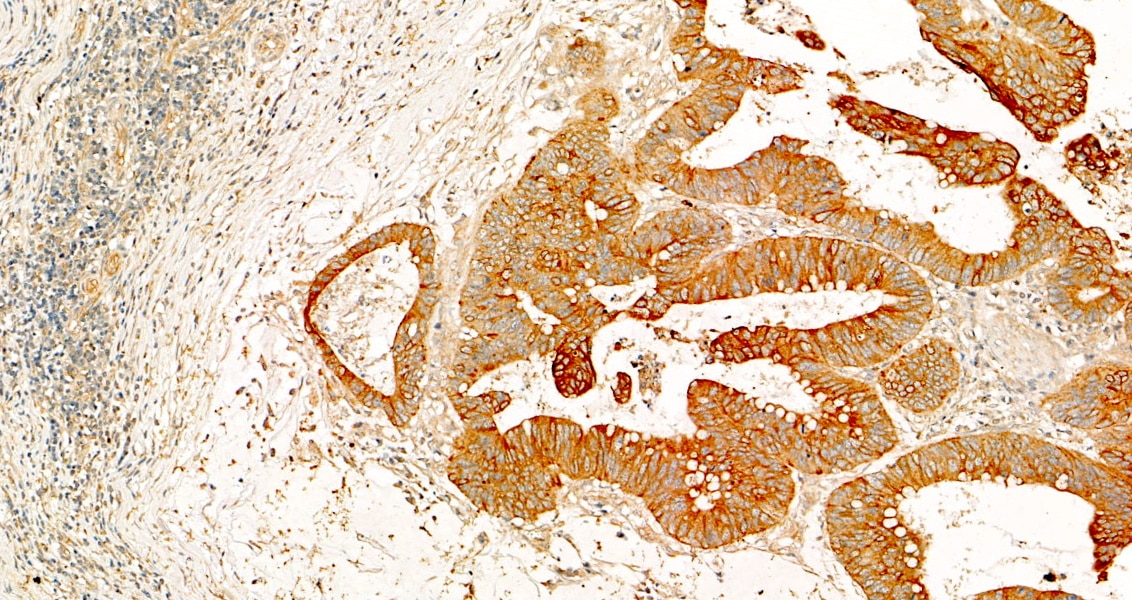 |
